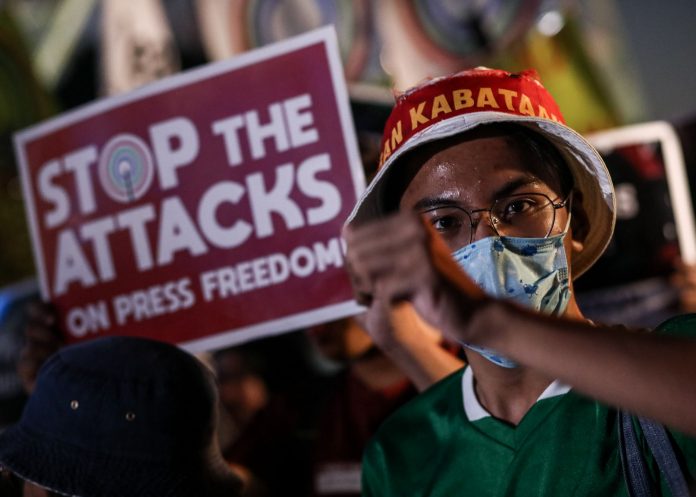A LEADING figure in the Philippine Catholic Church’s social communication ministry warned against what he described as “organized manipulation” of public perception toward the news media in the country.
Monsignor Pedro Quitorio, media director of the Catholic Bishops’ Conference of the Philippines, said there is a need “to reduce, if not to counter, the bad perception” inserted in the minds of the public.
The priest made the statement following the release of a study showing the “overall trust in news” in the Philippines is at a low 27 percent.
The 2020 Digital News Report noted that publications in the country that challenged the administration of President Rodrigo Duterte have faced increased attacks in recent years.
“Perhaps as a result, trust in the media is amongst the lowest of all the countries in this year’s survey,” read an analysis of the report authored by communications professor Yvonne Chua of the University of the Philippines.
Since his election in 2016, Duterte has vilified journalists, vowing to get back at those he felt had wronged him during the election and those who have been critical of his policies.
Monsignor Quitorio said groups seemed to have been “controlling the algorithm” in social media to shape public opinion against media people and news outlets.
“As early as 2016, the public has been bombarded with a tsunami of information discrediting news media in particular, calling them prostitutes and fake news,” said the priest.
He said some groups have “successfully used” social media as a propaganda tool to create the “present collective behavior of Filipinos toward the news media.”
The priest explained that if a community is bombarded with false information every day for a long period of time, the false information will eventually carry the semblance of truth.
The country ranked 35th among the 40 countries that were included in the 2020 Digital News Report survey conducted by the Reuters Institute for the Study of Journalism at the University of Oxford.
Chua said the country’s low trust rate in media is “perhaps” a result of “increased attacks … ranging from insults to state-initiated court cases.”

In May, media giant ABS-CBN was forced to shut down after its 25-year legislative franchise to operate expired.
More than 70 television channels and radio stations under its franchise also closed in the midst of the coronavirus pandemic.
Chua said the network’s “roller-coaster ride began when Duterte repeatedly threatened to close it for failing to run his political ads in 2016.”
“Journalists have been labelled ‘prostitutes,’ ‘fake news,’ ‘spies,’ ‘lowlifes’ and ‘enemy’ by the president and his supporters who have sown confusion between foreign funding of mass media, which is lawful, and foreign ownership, which is prohibited,” said Chua.
In April 2019, the government released a matrix accusing news sites Vera Files, Rappler and the Philippine Center for Investigative Journalism of plotting to oust the president.
The survey showed the internet is the number one news source for many Filipinos at 85 percent while traditional television scored 66 percent.
Monsignor Quitorio said the result of the survey is the “effect of the deliberate manipulation” of public perception toward the media.
He said the problem is not the public opinion but the people and organizations that “have been trying and succeeding to manipulate that opinion.”
“This is a war on truth. We have to fight by standing for the truth, otherwise, we will be living in a make-believe world,” said the priest.









